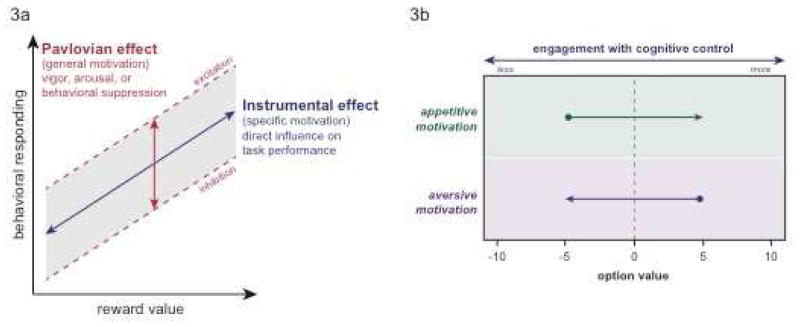Figure 3.
3a) Reward incentives may have parallel effects on motivation and behavioral responding via both Pavlovian and instrumental control influences. The Pavlovian effect may reflect a general motivation mechanism, such that the valence of an incentive biases responding in an overall excitatory (e.g., arousal, vigor) or inhibitory manner (e.g., behavioral suppression). Instrumental influences may implement a more directed motivation mechanism (e.g., specific enhancement of task performance). These two effects may occur simultaneously and alter behavioral responding via parallel mechanisms, but this distinction has not yet been fully explored within the context of cognitive control. 3b). The engagement of cognitive control might be construed as an economic decision. In the case of motivational conflict – consideration of an option that has both associated costs and benefits (e.g., money and saltwater) – appetitive motivation can be used to increase the subjective value of an option, thus offsetting the cost of engaging cognitive control (which would otherwise have negative subjective value; top panel). In contrast, aversive motivation has the opposite influence, decreasing the value of an otherwise attractive option (i.e., with positive appetitive value), and reducing cognitive control engagement via motivational conflict (bottom panel).

